WHAT WE DO
We provide a wide range of solutions to clients in need of expert pavement analysis, design, and construction services. Our experienced engineers work closely with clients to identify their unique needs and develop customized solutions that meet their specific requirements.
CONTACT US
PAVING CONSULTING
We provide a wide range of solutions to clients in need of expert pavement analysis, design, and construction services. Our experienced engineers work closely with clients to identify their unique needs and develop customized solutions that meet their specific requirements.
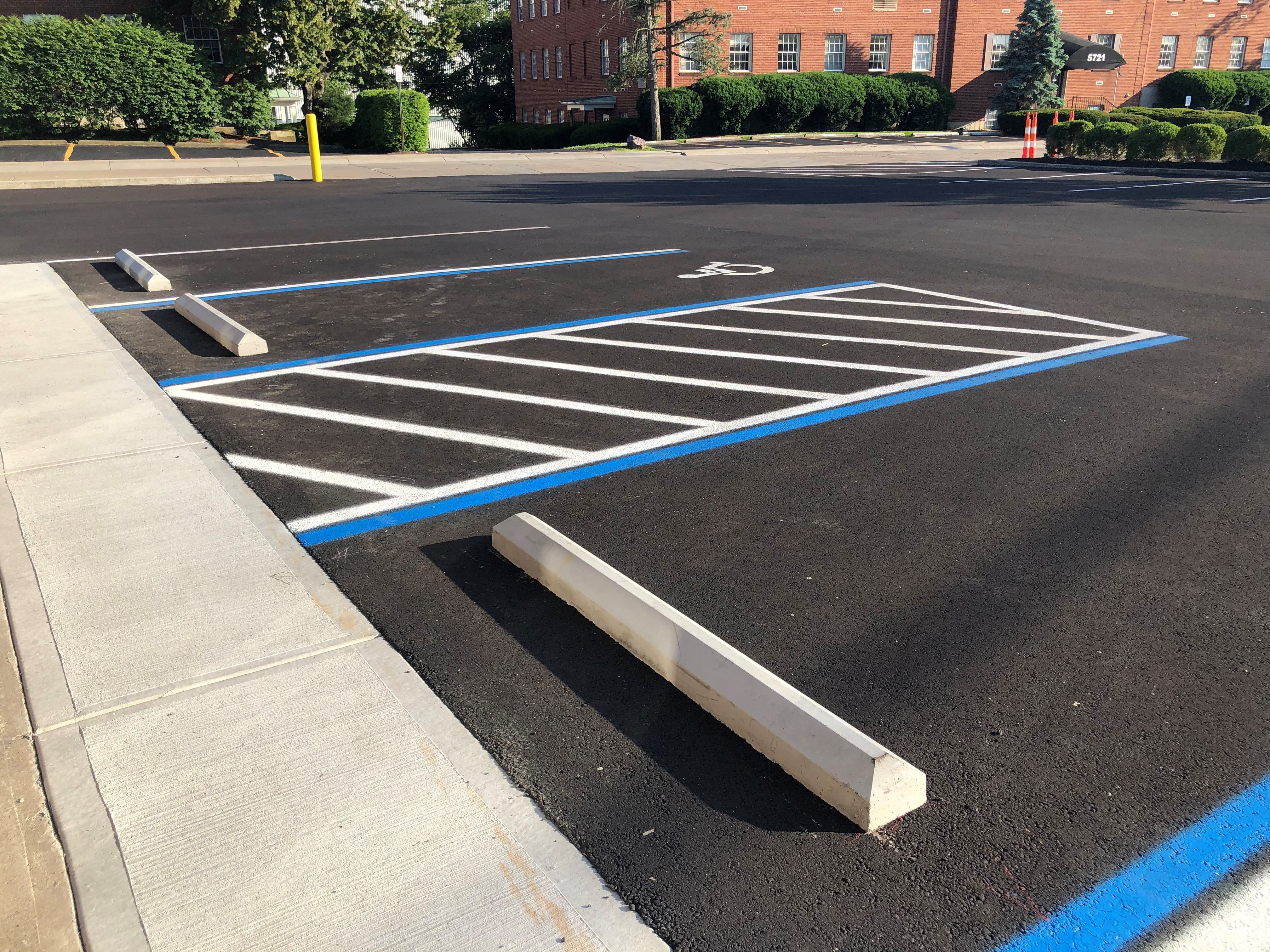
ASSET MANAGEMENT
Often with large portfolios, the technical review of properties is left to the local Property Manager or Operator. The challenge is in finding a consistent approach to match all the reviews and analyses of the entire portfolio based on individuals giving their opinion.
REI Engineers works with the Owner’s current documentation to implement a very tailored solution for improving the management of their site-related assets. These assets can include but are not limited to, pavement surface (concrete and asphalt), curb, striping, stormwater structures, signage, ADA Compliance, etc. REI often uses a program called PAVER™ to compile the database and run the calculations. REI is also working with other software developers who are independently creating new software that will perform a similar process.
Once REI Engineers performs data collection, they can use this information to populate repair packages across entire portfolios. This helps stretch the spending across more locations, saving time and money.
ASSESSMENTS
To understand the severity of any pavement condition there must be an initial assessment. This assessment would quantify distresses in the pavement areas and would help identify the condition of supporting structures like curb and gutter, striping, stormwater structures, and much more. The assessment may identify immediate safety concerns such as trip hazards or ADA compliance issues.
To make the initial investment cost-effective for the Client, REI typically recommends saving destructive testing for the design phase. However, REI can perform destructive testing as part of their assessment if the Client has already identified areas for replacement. When REI is assessing a larger portfolio, they will often use a program called PAVER™ to create and maintain a database for their client’s properties. This software is designed for compiling and calculating a pavement condition index (PCI), which follows the Standard ASTM D6433 Stand Practices for Roads and Parking Lots Pavement Condition Index Survey. While PAVER™ provides a great database for collecting information, it does not allow for an easy interface with the Client or the Engineer. REI has worked with multiple third-party software developers in the past and is currently working with others in an attempt on improving their software to encompass a standard collection process like PAVER™, to provide a more user-friendly experience between the Client and the Engineer.
REI customizes reports based on the Clients’ needs. Some Owners have individual stand-alone properties and can focus on repairs within one project, while other Owners may spread their focus to a large portfolio of properties answering the how and where to set priorities. This information is often used in prioritizing spending for Capital Budgets or Operations and Maintenance Programs.
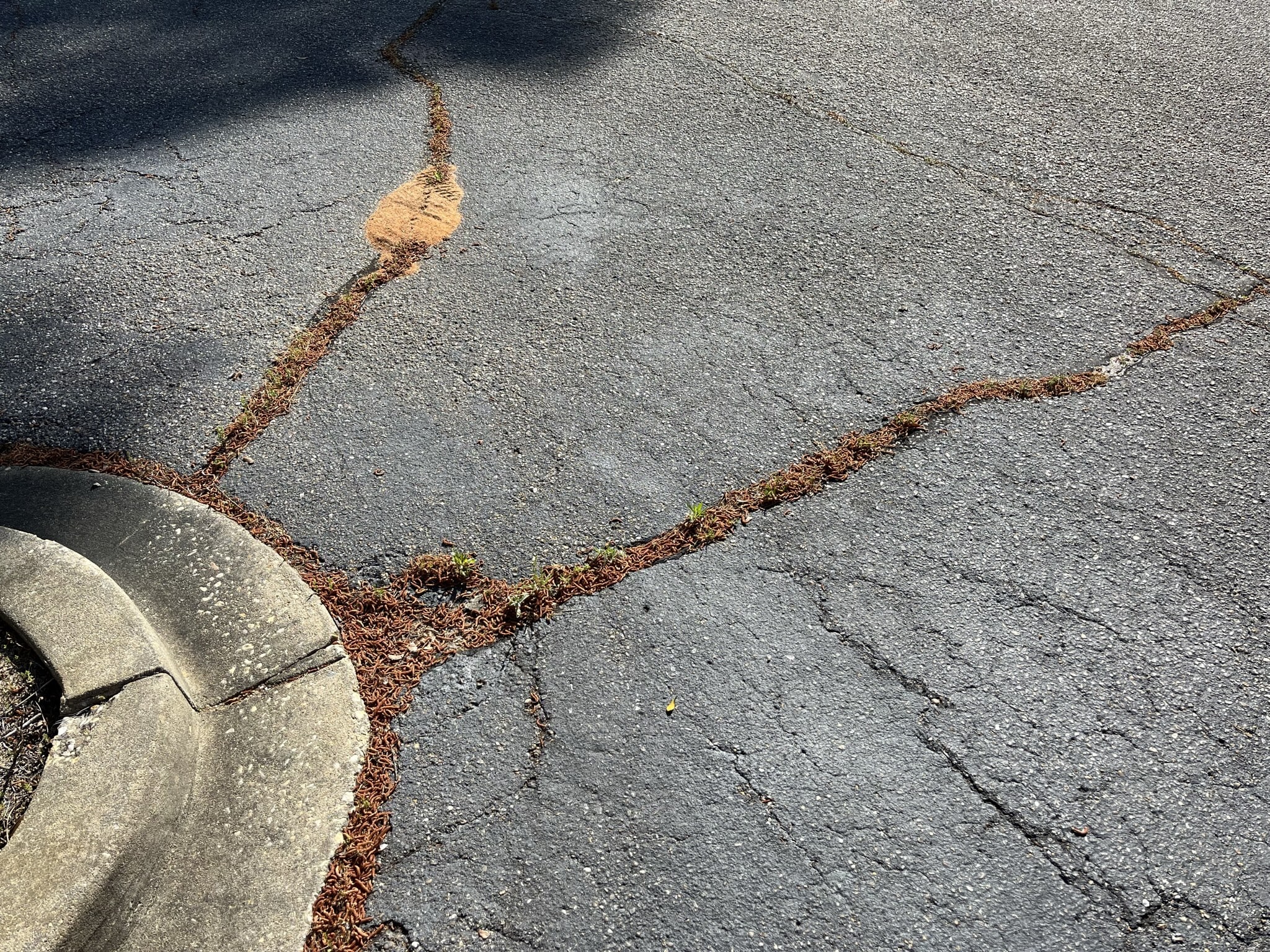
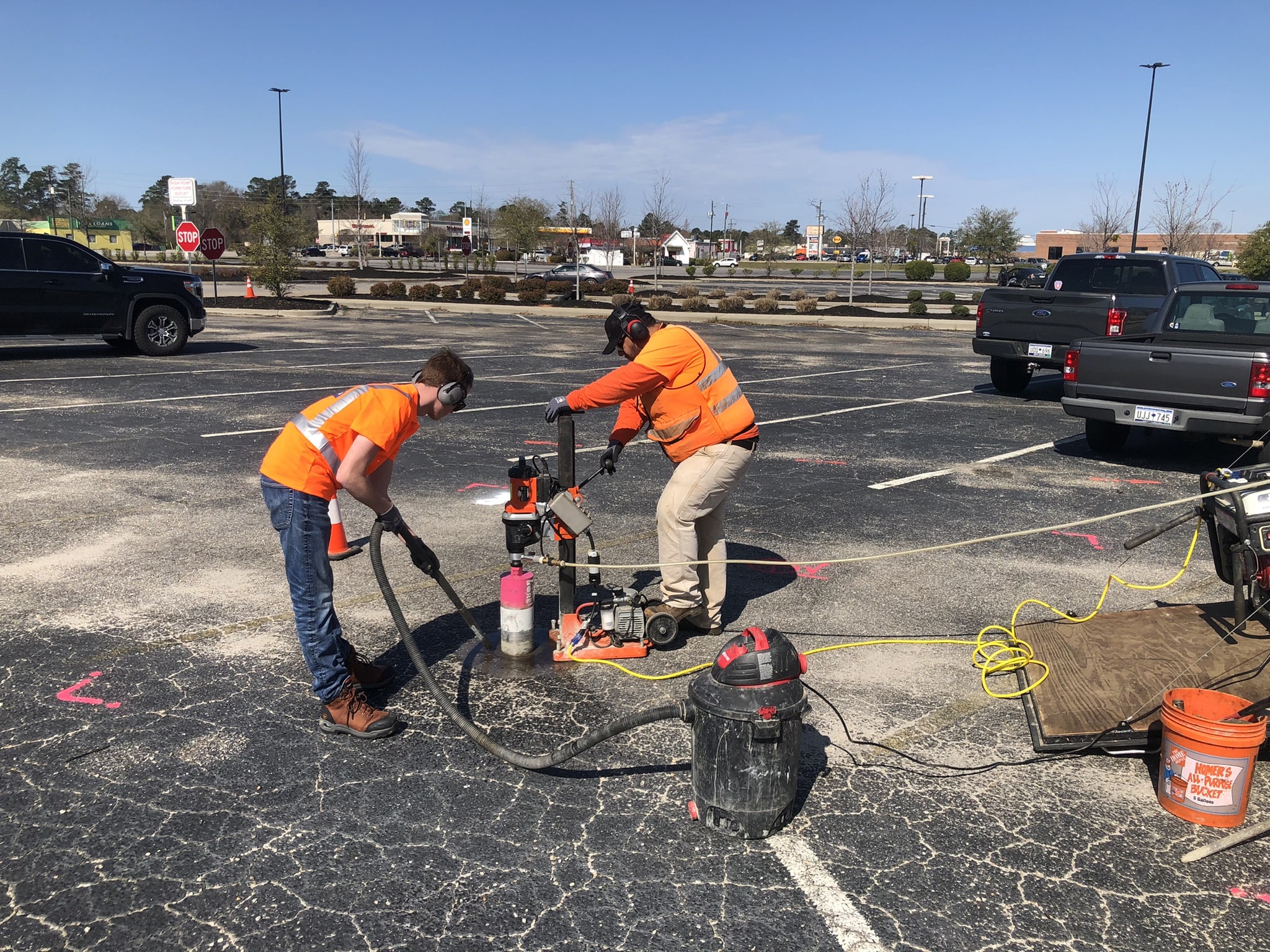
DESIGN
REI Engineers has experience in new construction and roadway design, and for more than 12 years they have specialized in the renovation and improvement of existing facilities. Existing facilities present a unique situation because the Client often attempts to resolve an identified issue in a cost-effective and least disruptive way. REI performs any/all necessary destructive testing in order to analyze and calculate an appropriate solution for each situation.
Often our clients’ operations must carry on while work takes place. This presents limits and restrictions inside the project scope that REI clearly identifies in the specifications. We then review the specifications with the Owner at a Design Review meeting and the Contractors at a Prebid meeting. The contractors have their own set of limitations either in production rates for their crews, maneuverability with equipment, or the time constraints when material suppliers are open and available. These issues are all unique to construction performed around existing facilities.
Contractors in this industry come in all styles and sizes. REI experience has left them with an essential understating of what type and size contractors are best suited for a job. REI also has a lot of experience with the local contractors for the areas they design in. This experience allows REI to make recommendations to their Clients based on past performance and not just a low bid.
IMPORTANCE OF CONSTRUCTION ADMINISTRATION
Construction administration is extremely important for time reassurance of a proper life cycle for your pavement. REI is there to ensure a quality product through reviewing contractor materials, Quality Assurance visits and final inspections. This helps the Client verify what the Engineer has designed, and the Contractor has priced is what they received. Most Clients do not have the experience and more importantly the bandwidth to oversee their pavement projects, which can move relatively fast in nature. By hiring REI for Construction Administration, the Owner is setting their pavement project up for success and reducing the time it takes for the project to end as well as increasing the life span of the paved area.
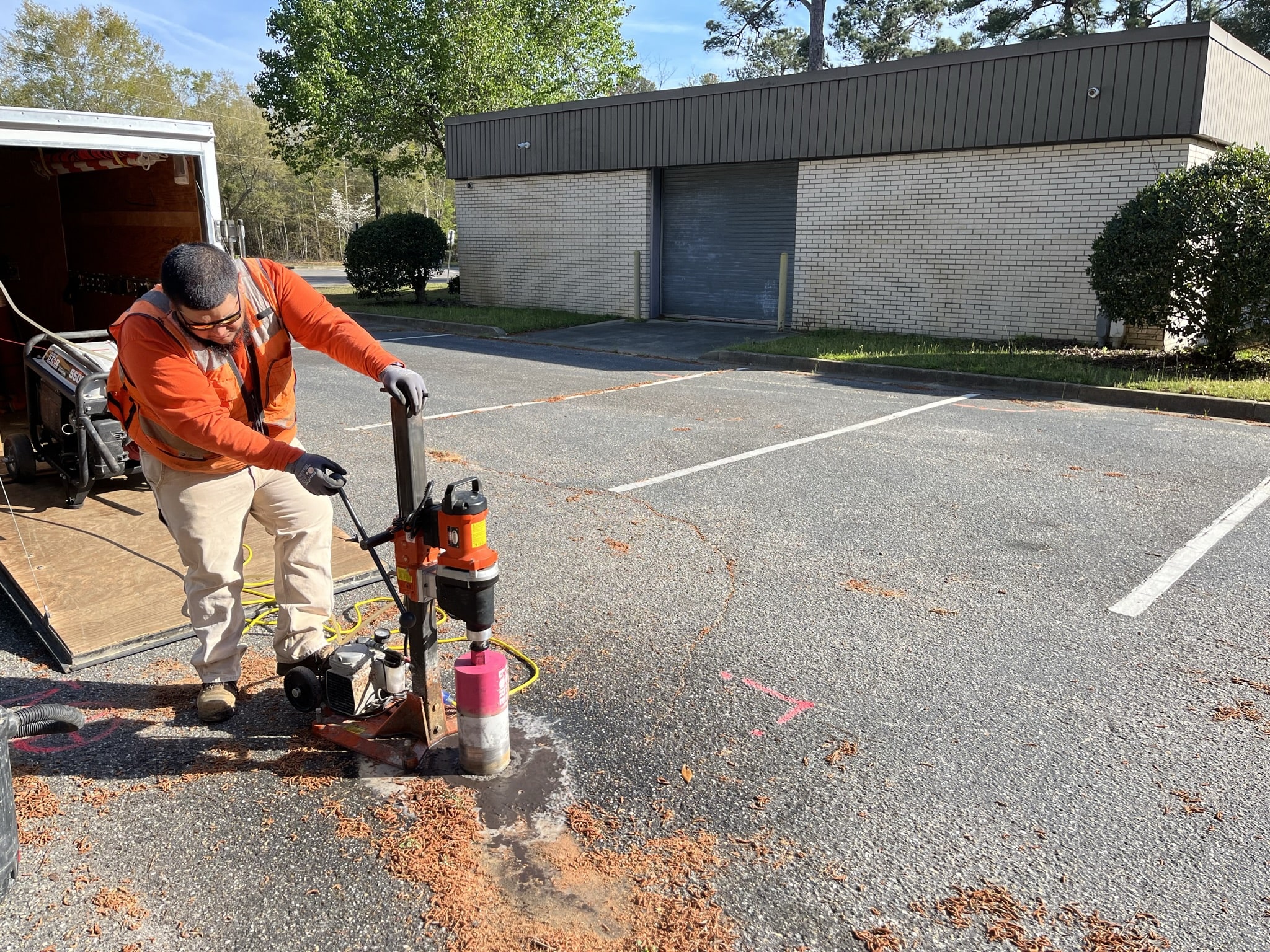
There are often many different issues that arise during the construction of existing facilities. REI is there for the Client to ensure a parking lot, sidewalk, or roadway will be long-lasting and conform to design. Once an agreement is put in place, REI facilitates the successful completion of the project by using the Contract Documents as the foundation. Before construction begins, REI reviews the materials that will be used by the contractor and ensures they are aligned to the specifications set in the design phase prior to construction. To avoid confusion, REI conducts Pre-Construction meetings which allow the Owner, REI, and Contractor to discuss issues that may arise during construction. Open communication is extremely important and sets REI apart from other engineering firms. We have close relationships with Owners and over 90% of our paving projects are with repeat Clients.
With a dedicated pavement team, REI will have open communication with the Client, making sure they stay informed throughout the construction process. One way REI continues to communicate and keep the Client informed is through Quality Assurance Observation Reports (QAORs). Observation visits and reports are performed, at a minimum, once every five business days. The frequency of the visits is tailored to the project and the timing of critical tasks. Unforeseen conditions are a common occurrence and REI is fully prepared to address inadequate conditions quickly and appropriately. Any non-conforming items during construction will be brought to the attention of the contractor and corrected. Without the use of an engineer, the non-conforming items can often be overlooked which can drastically impact the designed lifecycle of the new pavement structure.
REI also certifies monthly invoicing equal to the amount of work completed. This is to ensure the Client avoids paying for future work, encouraging the timeliness of the project, and will reduce the chances of the contractor getting paid for work not finished.
The work may be over, but not for REI. Once the job is complete, REI conducts a punch-list inspection involving the Contractor and Owner representatives. The list is given to the contractor to fix any issues noted before receiving retainage/final billing. To finally close the project, REI conducts a Final Inspection which helps confirm that the corrections were completed from the punch-list inspection. REI then provides the Owner with final billing and project closeouts that outline the entire project which may include a contractor’s warranty that lasts 1-2 years after the substantial completion date. Before the warranty expires REI inspects the property with the Owners approval and has the contractor fix any issues that are within the warranty. The Owner gets experienced REI professionals throughout the project and after it is complete, ensuring that they receive a long-lasting paving product.
REI ENGINEERS, INC. HOLDS ENGINEERING LICENSES IN THE FOLLOWING STATES:
- License Held
- REI Office
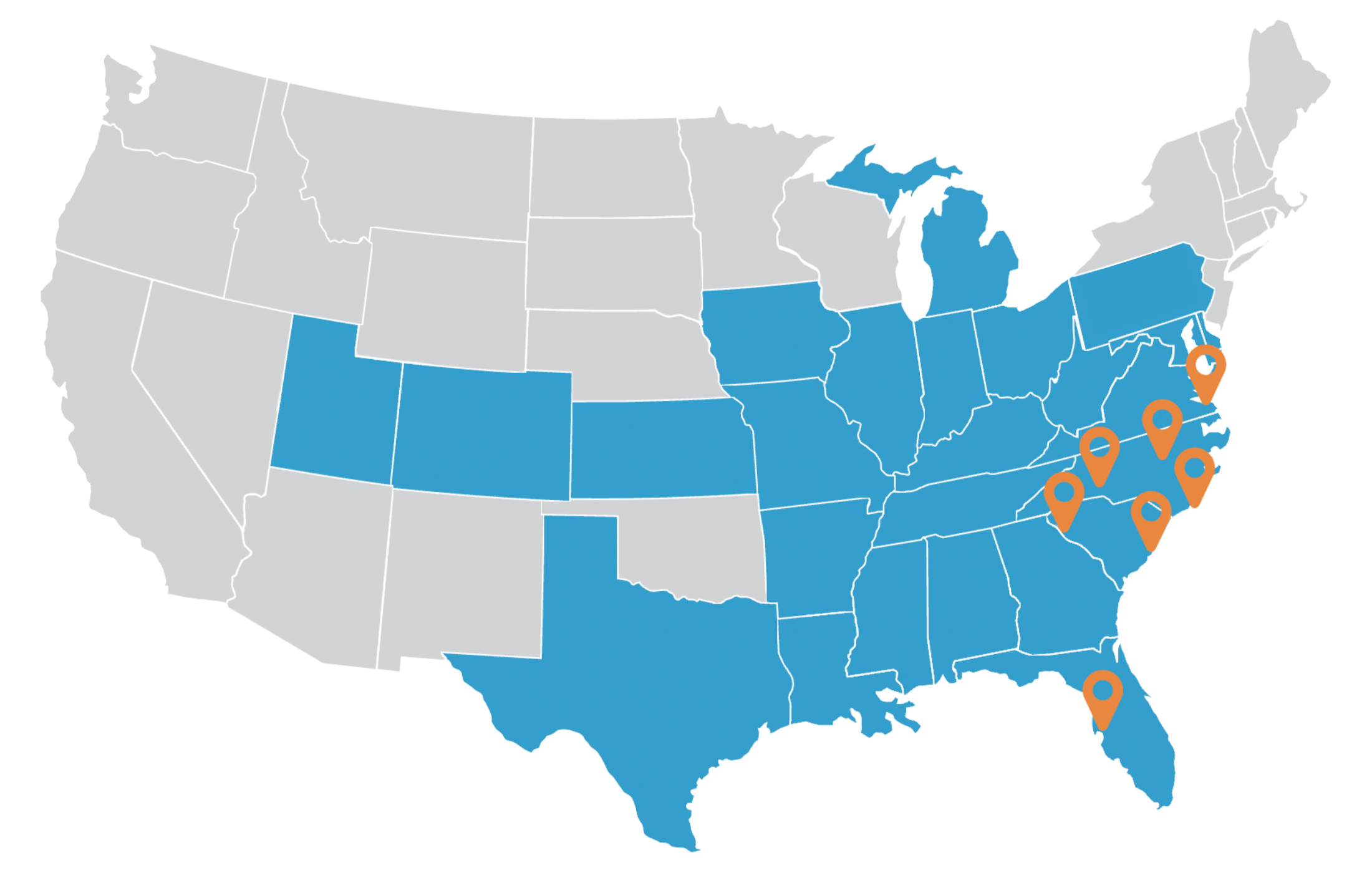
 REI Engineers
REI Engineers REI Engineers
REI Engineers